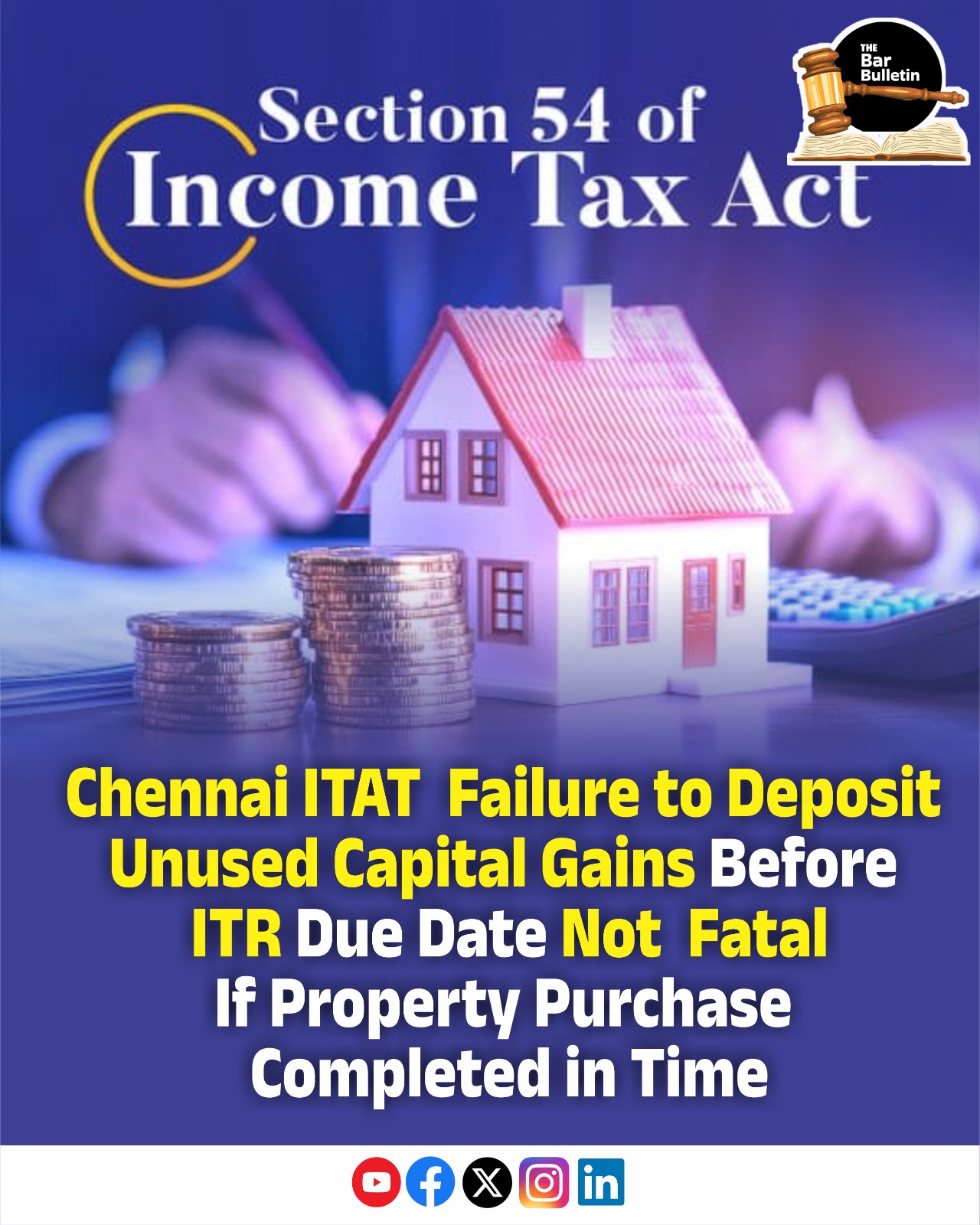While granting the benefit of exemption from capital gains tax to the homebuyer, the Chennai Income Tax Appellate Tribunal (ITAT) ruled that non-deposit of unutilized sale proceeds in the capital gains account scheme before the ITR due date is not fatal. Reference was made to Section 54 of the Income Tax Act, which provided that if an individual or a Hindu Undivided Family (HUF) sold a long-term capital asset in the form of a residential house, the capital gains from such transfer would be exempt from tax, subject to reinvestment conditions.
The Tribunal clarified that the exemption under Section 54 would be available to the taxpayer if the taxpayer has purchased a residential house within one year before, or two years after the date of transfer of the original property, or constructed a new residential house within three years from the date of transfer.
The Tribunal also clarified that the amount of the capital gains must be invested in the new residential house to claim the exemption. In case the entire capital gains are not invested, then the exemption is proportional to the amount invested.
The Division Bench comprising George George K (Vice President) and S.R. Raghunatha (Accountant Member) observed that the original asset was sold on April 01, 2009, and the new asset (undivided share of land) was purchased on January 19, 2012, whereas the appellant had entered into the construction agreement on January 11, 2012. Thus, the three years from the date of sale of the original asset end on March 31, 2012.
Since the appellant had made an investment / utilized the sale proceeds of the original asset in the purchase of a new asset within the stipulated period, i.e., three years from the date of sale of the original asset, the Tribunal concluded that the appellant taxpayer would be entitled to claim a deduction under Section 54 amounting to Rs. 10.27 lacs.
Briefly, in this case, the Department had information that the appellant had sold an immovable property, but did not admit the long-term capital gains while filing his ITR. Accordingly, the AO issued a reopening notice, and the appellant admitted income of Rs. 6.89 lacs in his return. The appellant also furnished the working of Long-Term Capital Gains and investment, from which the AO noted that the appellant had invested in the new asset only on January 19, 2012, and therefore, denied the deduction under Section 54 opining that the unutilized sale proceeds of the original asset were not invested in the capital gains account scheme (CGAS) before the due date of filing of return under Section 139(1) of the Income Tax Act.
Appearances:
Advocate N. Arjun Raj, for the Appellant/ Taxpayer
Advocate Gouthami Manivasagam, for the Respondent/ Revenue



